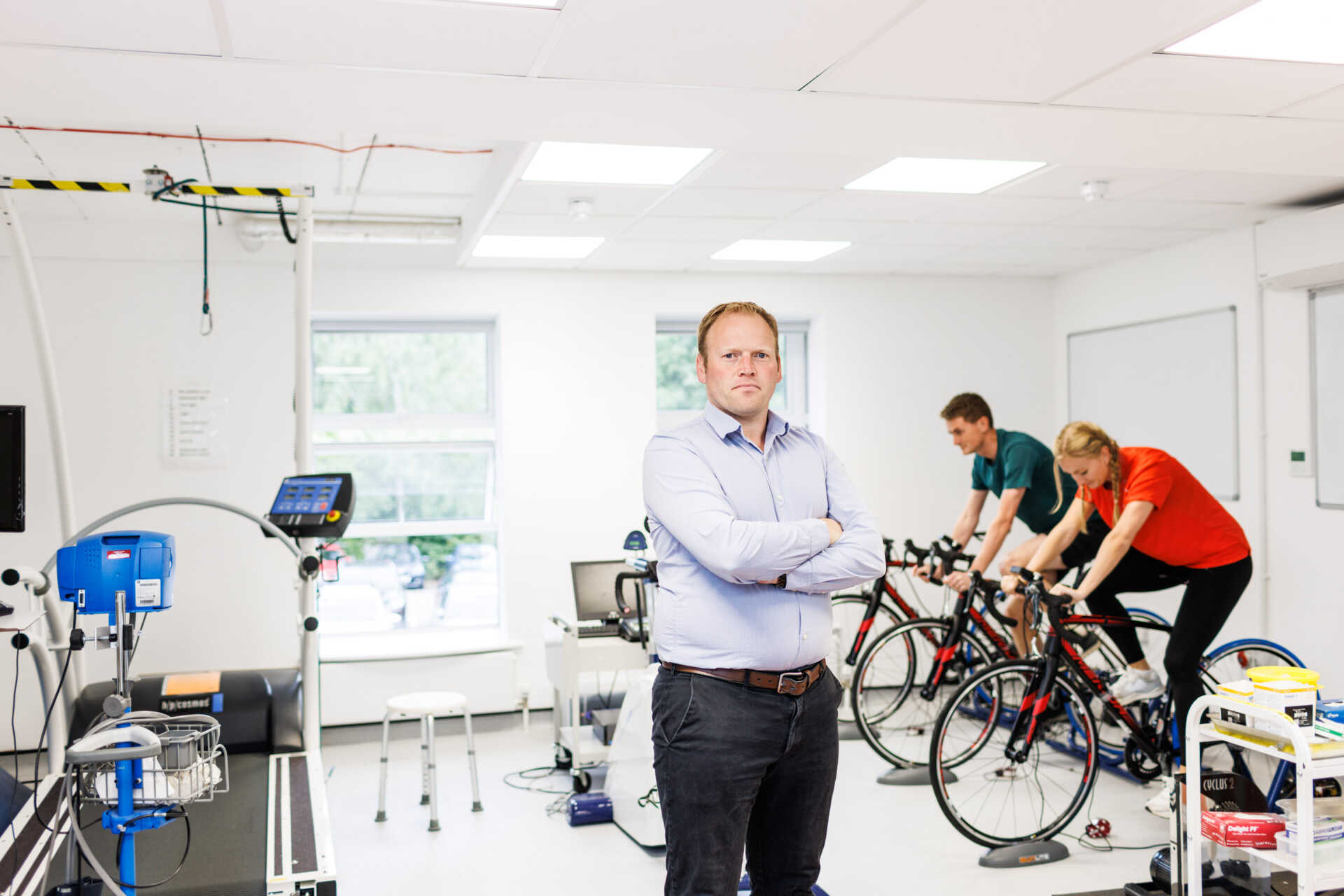
Professor John Dickinson's research on asthma and breathing issues in elite athletes led him to working with Team GB swimmers, as well as top football clubs including Arsenal, Liverpool and Manchester United. His research is changing lives.
In 2003, interest piqued by an article on breathing muscle trainers, recent graduate John Dickinson contacted the academic behind the story to see if there were any related PhD opportunities. Six months later, he was testing the British Olympic team for asthma. Almost 20 years on, John’s research has led to major advances in our understanding of the diagnosis and management of asthma in elite athletes. “Asthma prevalence in the general population is about 10%, but we’ve found that in elite athletes it’s much higher: 70% in the British swimming team and between 25% and 30% in rugby and football.
Following stories suggesting that using asthma inhalers gave athletes an unfair advantage, John was asked by the World Anti-Doping Association to investigate. “The worry was that athletes who needed to use inhalers would be reluctant to do so. For me, it wasn’t just about elite athletes, it was also about kids avoiding using their inhalers because they were seen as a bad thing and by doing that damaging their lungs. So to be able to show that normal inhaler use doesn’t give you ‘super lungs’ but does ensure you have healthy lungs was rewarding.”
A pioneer in the field, John is now a recognised expert who believes his work, including his latest project investigating breathing pattern disorder, can help all of us, not just those at the top of their game: “My hunch is that a lot of people try exercise but get breathless and stop. Our research has shown what a healthy breathing pattern looks like, so it might be possible to devise some general principles around breathing, which could help people stay active.”
explores the use of science and technology for future human development by creating a broad and interdisciplinary understanding of the opportunities, limits, challenges, and risks of using science and technology to overcome the limits of our bodies